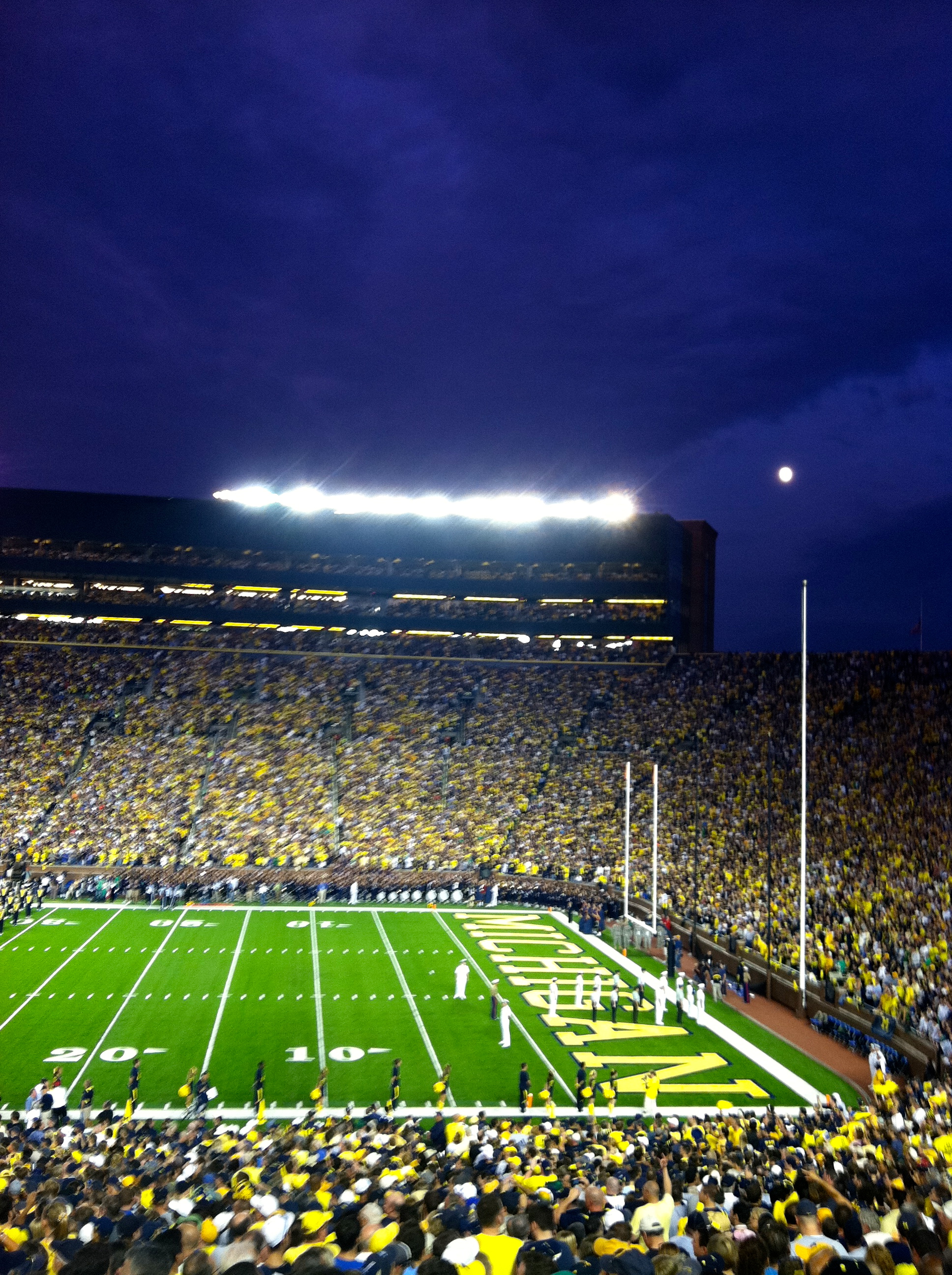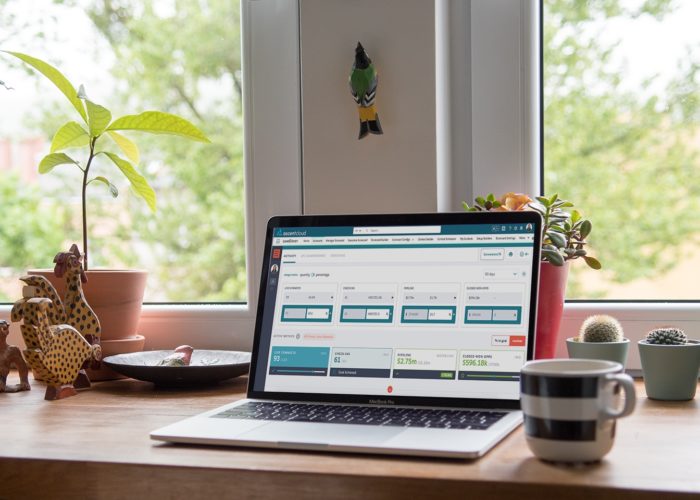 I’m so pumped for the big game this Saturday (you know the one) that I needed an outlet. Evidently, that’s a blog post, and yes – on what sales gamification has in common with Michigan vs. Notre Dame.
I’m so pumped for the big game this Saturday (you know the one) that I needed an outlet. Evidently, that’s a blog post, and yes – on what sales gamification has in common with Michigan vs. Notre Dame.
Gamification is a broad term, so I should mention that I mean it here in relation to the use of competitions and leaderboards to motivate your sales team.
Alright, that’s all I’ve got for housekeeping. Start the clock.
4 Truths About the Michigan-Notre Dame Game & Sales Gamification:
1. It might seem like you have an endless amount of time to dwell on a win or loss – especially when it may be your last time having a particular contest – but you need to honor the 24-hour rule.
The 24-hour rule in football goes like this: You have 24 hours after a win to celebrate, a loss to cry. Then move on to the next opponent.
That means even though this may be the last time we’ll see Notre Dame in the Big House, both sides have 24 hours to really focus on the outcome. Yes, the winner still has gloating rights in the future. But starting Sunday, Michigan needs to turn its primary attention to Akron and Notre Dame, to Purdue.
The same goes for sales gamification. Just because a sales rep won the last competition doesn’t mean he can relax in the next one, and in the case of bottom performers, self-pity can’t persist. Both sides need to direct productivity toward the next initiative leadership wants to motivate.
2. Bragging rights are worth at least $423.17.
The average asking price for a ticket to the big game? You guessed it: $423.17. And when it comes down to it, what are fans getting out of it? Sure, entertainment. Yes, history. But it all comes down to bragging rights.
Even out of those willing to pay lofty prices for the sake of watching history, when you drill deep, I’d argue that most simply want to say they were there – at the last game Notre Dame is set to play in the Big House. After all, if it were for the sake of history itself, well, let’s be honest – history is made every Saturday this time of year.
With sales gamification, we instruct people more than often not to get caught up in choosing glamorous prizes. We have story after story about clients getting their teams engaged around things like key sales initiatives or CRM adoption, using minimal incentives. And we’re talking prizes like bragging rights and $10 gift cards.
3. People are so competitive, they’ll compete over something that will never even have a determined winner.
Michigan and Notre Dame both claim to have the best fight songs. No contests or statistics exist to actually compare the songs; nobody will ever know which really wins. Yet, the rivalry between bands stands nearly as large as that between the players.
As for your sales reps, they’re competing right now, regardless of whether you’re running a contest. Gamifying your work environment simply means tapping into that. The great thing about it? When you do implement competitions, your team has the means to determine a winner. Just wait to see what they’ll do.
4. If your team gets fired up to compete, and you discount the rivalry, you’re simply going to irritate people. (Note: This even applies if you change your mind later on).
On the football side… enough said.
In the workplace, a leader who knows how to leverage sales gamification will promote the competition. Show competitors’ faces on real-time leaderboards, encourage a bit of trash talking on platforms like Salesforce’s Chatter and keep your team motivated in return.
So, there you have it: four truths that apply to both the Michigan-Notre Dame game and sales gamification. I hope you learned something new about motivating your team. Now go put it to work!
And in conclusion, Go Blue.



